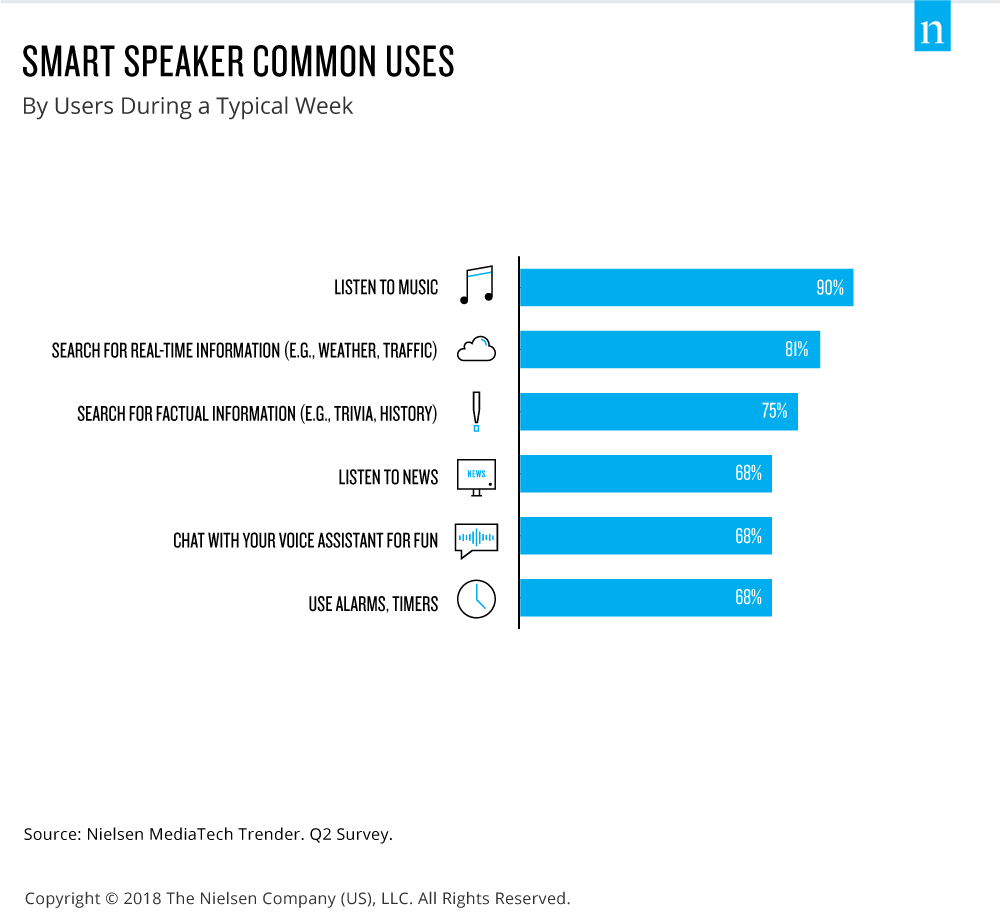OK Google, How Does Voice Search Impact Local Service Marketing?

Voice search is growing fast. As speech-recognition accuracy gets better and better, more and more of us will start using voice searches and commands.
There is an often-quoted statistic among search marketers that 50% of all searches will be conducted by voice by 2020. Often attributed to ComScore, the prediction was in fact made by then-chief scientist at Baidu (China’s biggest search engine), Andrew Ng, in an interview with Fast Company.
While Ng was referring to Baidu and China when he made his prediction, it seems that voice search is getting more popular across the globe. Don’t get left behind!
What are voice assistants?
The four biggest companies in the world (measured by market capitalization) are harnessing the power of speech processing and machine learning to provide users with a personal helper that lives with them at all times. Personal assistants now come pre-installed in computers, phones, tablets, cars, TVs, and other internet-connected devices.
You can also purchase a dedicated “smart speaker” (e.g. Amazon Echo, Apple HomePod, and Google Home), which have grown rapidly over the past couple of years.
Popular Voice Assistants
- Alexa (Amazon)
- Google Assistant
- Siri (Apple)
- Cortana (Windows)
General Voice Search Statistics
- Today, one in four (24% in Q2 2018) US households has access to a smart speaker and 40 percent of those households own multiple speakers (Nielsen).
- By 2020, 30% of web browsing sessions will be done without a screen (Gartner).
- 58% of consumers have used voice search to find local business information within the last year (BrightLocal).
- Google Assistant is available on more than 500 million devices and it works with over 5,000 connected home devices (Google).
- The average keyword length on desktop is 1-3 while voice queries are around 9 (Neil Patel).
Can you pay to advertise on voice assistants?
You CANNOT buy into voice search at the moment. Currently, there are very limited marketing opportunities.
Obviously, if you are playing Spotify or podcast, you will hear your usual audio advertisements.
Google, Apple, Amazon, and Windows are focusing on the user experience for now. As more and more users start using voice search, advertisement opportunities will likely follow.
How are voice searches different from traditional searches?
Voice searches are around 30 times more likely to be action queries than typed searches, according to Google (SEM Post).
“Play this song” is a common voice command and example of an action-based query.

Source: Nielsen
As you can see, most people use voice assistants for playing music, making calls, setting times, checking the weather, and monitoring sports and the news. It doesn’t seem like there is much opportunity for brand growth.
But things are changing. Voice search plays a major part in the transition into a screenless internet. Start thinking about your business, website, ads, call center, and customer experience. Are they as good as they can be?
We are still seeing this space evolve, and in all honesty, we have relatively limited data. But, we can extrapolate from the information we do have.
-
Longer search queries
Voice searches are different from typed searches. As mentioned before, the average keyword on desktop is 1-3 while speaking a query is around 9. When people are speaking, they use longer tail keywords, whole sentences such as “Where is the best place to develop film in Greenwich Village?” as opposed to something like “develop film Greenwich Village.”
When optimizing your content for voice search, focus on long-tail keywords.
-
More questions
Who, what, when, where, and how. Most people are using voice search for narrow, repeatable queries, such as “Play ‘Thank you, next’” or “What’s the weather today?” but around 25% of people using voice are using it with some form of purchase intent behind it, such as “Chinese food near me” or a question about a product or service.
As voice search gets more and more advanced, we expect more people will start using it for online ordering and much more.
This may be a time to start rethinking your keyword strategy.
-
More local
Voice searches are 3 times more likely to be local than text searches (Search Engine Watch).
-
More competitive and expensive
With voice search, it’s pretty much winner takes all. Often there is only one response that is returned.
Continue reading to learn how to improve your chances of appearing in voice search results.
How to Market for Voice Search
-
Mobile-friendly website
If you don’t have a responsive, mobile-friendly website, you’re already behind. Start there.
-
Expand search campaign to include broad match keywords
People will be asking questions and statements in a variety of ways and you want to appear for all of them. Broad match is a keyword setting that causes your ad to appear for that keyword or some variation of it, such as misspellings and synonyms. Learn more about Smart Bidding.
-
Get listed in local properties like Google My Business and Yelp
People will bypass your website completely and want to call the business straight from the search results. Local businesses aggregators can help you show up in voice search. It’s important to make sure your name, address, and phone number (NAP) is correct and consistent across the internet to make it easy for voice search devices to find and pass on to customers. Learn how to use location extensions in your ads.
-
Create FAQ style content and shoot for featured snippets
Start answering relevant questions on your website. Create simple, easy-to-read content. One of the main sources of voice search results is featured snippets, aka Position 0. If you’re familiar with voice search, you know that smart assistants often read you the answer to a question from a featured snippet.
Featured snippets are hard to rank for, but due to voice search they are now more valuable (and competitive) than ever.
-
Target long-tail keywords
People talk queries much longer than they type them. Longer tail keywords are also less competitive. Start creating content targeted toward conversational questions, such as “should I replace ac and furnace at the same time?” instead of “replace ac.”
-
Include short answers within your content
Pages with over 2,200 words perform better than pages with less words. Within the long-form content, you want to have many quick and short answers to likely questions. This way, Google has more to pull from when providing answers to search queries.
-
Make sure website is compatible with https framework
HTTPS (Hypertext Transfer Protocol Secure) provides additional security by encrypting secure information. Google uses HTTPS as a ranking signal.
-
Make sure your website loads fast
You want to aim for a site that loads faster than 3 seconds. If your site loads slower than that, over half of your visitors will leave and you probably won’t get any traffic from voice search.
If you’re not happy with what you see, learn how to make your website and mobile pages lightning fast.
-
Build an authoritative domain
Trusted, authoritative sites get the most traffic from voice. But you’re not going to become Forbes or Martha Stewart overnight.
Here are the things you need to start growing to become an authority in your industry:
- Links
- Great Content
- Social Shares
- Good User Experience
Learn more about content marketing strategy.
-
Use schema markup
Structure your website content with schema markup, which tells the search engines how to classify and display your search engine results, including special features and enhancements such as review stars.
New Marketing Opportunities
Since you don’t have to read or write, voice search opens up opportunities to reach new audiences, such as the young, illiterate, blind, and elderly.
By partnering with an internet marketing company, you can start positioning your local service company for success in 2019 and beyond.
Voice search is here to stay. Are you ready?
Learn More about Voice Search and Other Market Disruptors for the Home Service Industry
Get ahead of your competitors by looking ahead! Learn about current and future market disruptors that could hurt your company if you’re not careful – or improve your company if you’re riding the wave.
In VitalStorm’s eBook, 5 Market Disruptors for the Home Service Industry (and How to Use Them to Your Advantage), you’ll learn how to navigate disruptions in the home service industry including the Amazon Home Services, Voice Search and other recent innovations.
Schedule your FREE website, PPC, SEO, call center training, and general online marketing consultation by calling the number below.
1-877-311-5695
VitalStorm stays on top of all the latest digital marketing news so you don’t have to. Follow us on Facebook, Twitter, and Google+.

